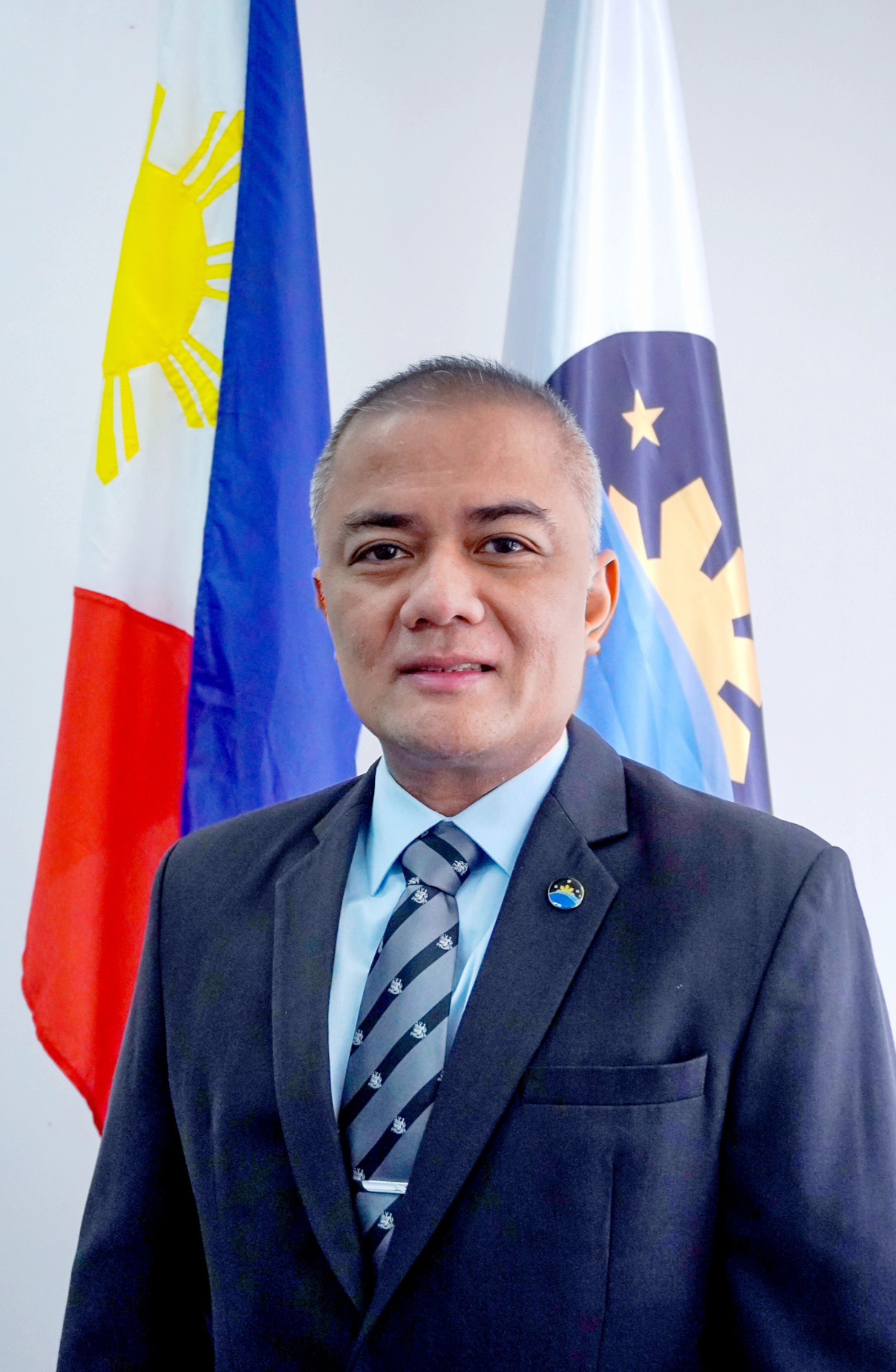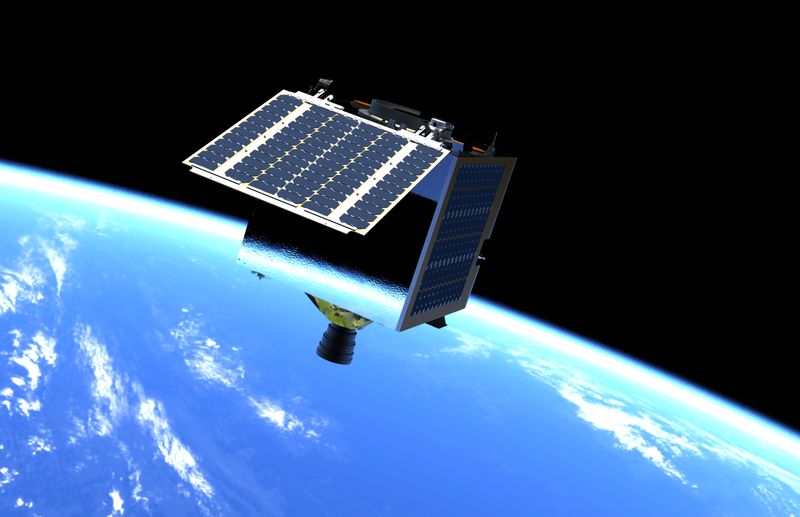Dr. Joel Joseph S. Marciano Jr., Philippine Space Agency (PhilSA)
Established in 2019 under Republic Act No. 11363, or the Philippine Space Act, the Philippine Space Agency (PhilSA) is actively expanding its operations. As a Data Provider Node (DPN) for Sentinel Asia since January 2023, PhilSA has been instrumental in providing critical satellite data to support disaster response and management efforts in the Philippines, a country frequently affected by natural disasters such as storms, earthquakes, and volcanic eruptions. In November 2024, PhilSA co-hosted Sentinel Asia's Joint Project Team Meeting (JPTM), which was held in Quezon City, Philippines. During the event, Dr. Joel Joseph S. Marciano Jr., Director General of PhilSA, was interviewed by the Sentinel Asia Secretariat to introduce the agency's activities, particularly its involvement with Sentinel Asia and its contributions to the global space community.
 |
| Dr. Joel Joseph S. Marciano Jr., Philippine Space Agency (PhilSA) |
Sentinel Asia Secretariat
Over the past 10 years, much has changed in the Philippines regarding space policy and stakeholder involvement. Given that the Philippine Space Agency (PhilSA) was established in 2019, could you share the story behind its establishment and its purpose?
Dr. Marciano
The establishment of PhilSA is a significant milestone for the Philippines. Before its creation, the Department of Science and Technology (DOST) managed various projects in space science and applications while simultaneously supporting activities related to space policy formulation. It became increasingly clear to DOST—and the nation as a whole—that the Philippines needed to build capabilities in space technology to address challenges like natural disasters while also leveraging this technology in areas such as national and food security and marine resource management. This realization led to initiatives such as developing microsatellites in collaboration with Japanese universities and JAXA.
On the policy front, the efforts culminated in the Philippine Space Policy, signed in 2019, outlined the principles and necessity of having a space program. This policy emphasizes the importance of being a global actor, keeping pace with other nations in space innovation, ensuring representation in international space-related bodies, and leveraging space technologies for scientific advancement, disaster and climate resilience, and economic progress.
The policy identifies six key development areas where space science and technology can contribute. These include national security and development, hazard management and climate studies, space industry capacity building, space research and development, education and awareness, and international cooperation. PhilSA's mandate is to address these areas, fostering a domestic space ecosystem while coordinating national policies and initiatives.
PhilSA also benefits from strategic oversight. The Philippine Space Act established the Philippine Space Council, chaired by the President and vice-chaired by the Secretary of National Defense and the Secretary of Science and Technology, with other members from various government departments and the legislative branch. This positioning underscores the agency's pivotal role in integrating space technology into national socioeconomic development and resilience strategies.
Sentinel Asia Secretariat
What is PhilSA's role within the Philippine government for space development, particularly in disaster management using space technologies?
Dr. Marciano
PhilSA's role is rooted in our national space program, which, in turn, is aligned with the Philippine Space Policy. Our vision is to bridge, uplift, and empower the nation through the peaceful uses of outer space, and our mission is to promote a robust space ecosystem that creates value across all sectors of society. To achieve this, we use the space value chain as a strategic framework that guides us in ensuring that investments in space capabilities yield socioeconomic benefits.
One key area of our work is the development of satellites and upstream infrastructure, which play a critical role in disaster risk reduction and management and address other pressing concerns in the Philippines. We have engineers building satellites and collaborating with stakeholders to determine requirements for data and applications. This process is reflected in our decadal survey, which outlines gaps and opportunities in Earth observation over the next 10 years.
Once data is gathered—whether from our satellites, commercial sources, or open platforms such as the International Disasters Charter or Sentinel Asia—our focus shifts to ensuring its effective utilization. Partnerships with agencies and organizations are vital for producing insights and maps that address real-world needs. However, the true value of these outputs is realized only when they are actively used by stakeholders. Engaging end users through feedback loops is key to maximizing the societal benefits of space investments.
Our work involves bridging gaps, fostering collaboration, and ensuring that space technology outputs are integrated into decision-making processes. Without widespread adoption, the potential of space technology to contribute to disaster management and national development remains untapped.
Sentinel Asia Secretariat
What is PhilSA's position in relation to Sentinel Asia?
Dr. Marciano
Sentinel Asia provides a platform that aligns perfectly with PhilSA's functions and mandate. Initially, the Philippines participated as a data user. Now, with PhilSA inheriting satellite operations from DOST, we have progressed to being a Data Provider Node (DPN). Developing space missions and operating satellites have put us in an excellent position to contribute actively to the Sentinel Asia community.
Beyond data contribution, we see Sentinel Asia as an opportunity to share experiences— both in generating data and in how it is applied. Each member country has unique use cases, from emergency response to disaster management. Sharing insights about how data is distributed, presented, and used by various groups can lead to valuable lessons for everyone involved. For instance, feedback from end users, whether high-level decision-makers or local responders, helps refine how data is delivered and ensures that it has practical value.
Sentinel Asia also emphasizes capacity building, ensuring that skilled professionals can analyze and apply data effectively. By participating in this platform, we aim to both learn from and contribute to the growing knowledge and capabilities of the regional space community.
Sentinel Asia Secretariat
Could you tell us about PhilSA's plans for developing future Earth observation satellites?
Dr. Marciano
Strengthening the entire space value chain also entails building satellites and upstream infrastructure. Our goal is to enhance proficiency in satellite manufacturing, particularly in Earth observation technologies. This journey began before PhilSA was established, through DOST-led projects developed in partnership with Japan.
The success of these projects lies in the skills acquired by the people involved. Many of them have gone on to mentor younger engineers, contributing to a growing pool of talent in space technology. For example, our recent multispectral satellite, which includes a 5-meter resolution camera, addresses applications such as agriculture and environmental monitoring. These missions are based on identified gaps and national needs, and they underscore the importance of continuity in satellite development.
While one satellite alone cannot address all challenges, it builds the foundation for future collaborations. Our goal is to reach a level of proficiency where we can contribute meaningfully to international missions, whether by building entire satellites or developing specific components. Collaboration also extends to downstream activities, such as data analysis and utilization.
Building satellites is not just about technology; it's about building expertise and ecosystems. We're working with universities to train the next generation of scientists and engineers, ensuring that the Philippines remains an active participant in the global space community.
 |
| The Philippines' next earth observation satellite "Multispectral Unit for Land Assessment" (MULA) |
Sentinel Asia Secretariat
PhilSA co-organized Sentinel Asia's Joint Project Team Meeting (JPTM) 2024, and you personally participated in the event. What are your impressions of the meeting, and what was the purpose and outcome of hosting it?
Dr. Marciano
Hosting JPTM was an invaluable opportunity for PhilSA. As a young agency, such events allow us to grow and learn from the broader regional and global space community. More importantly, they reaffirm our commitment to collaboration, which is central to the work of any space agency. Through initiatives such as JPTM, we contribute to and benefit from the shared knowledge, expertise, and experience of the Sentinel Asia community.
For the Philippines, the meeting also showcased our hospitality and highlighted our aspirations to play a meaningful role in regional cooperation. Hosting JPTM gave us a chance to engage more deeply with other countries, share our progress, and reflect on how we can continue to contribute to Sentinel Asia's mission.
Sentinel Asia Secretariat
What do you expect from Sentinel Asia, and how will PhilSA contribute to it in the future?
Dr. Marciano
Sentinel Asia is fundamentally about fostering collaboration and sharing experiences. Disasters know no borders, and this shared understanding drives the need for cooperation. Each country brings unique capabilities and needs to the table, and platforms like Sentinel Asia help align these for mutual benefit.
Moving forward, we hope Sentinel Asia continues to focus on the downstream use of satellite data, particularly in operationalizing insights for disaster response. Sharing practical experiences—how data is mobilized, who uses it, and the feedback received—can strengthen the entire community. We also anticipate deeper discussions on data timeliness and how more member groups can contribute to and benefit from Sentinel Asia's output.
PhilSA is committed to supporting these goals by enhancing our data provision capabilities, engaging with stakeholders, and collaborating with other members. We believe that by working together, we can build stronger space ecosystems across the region.